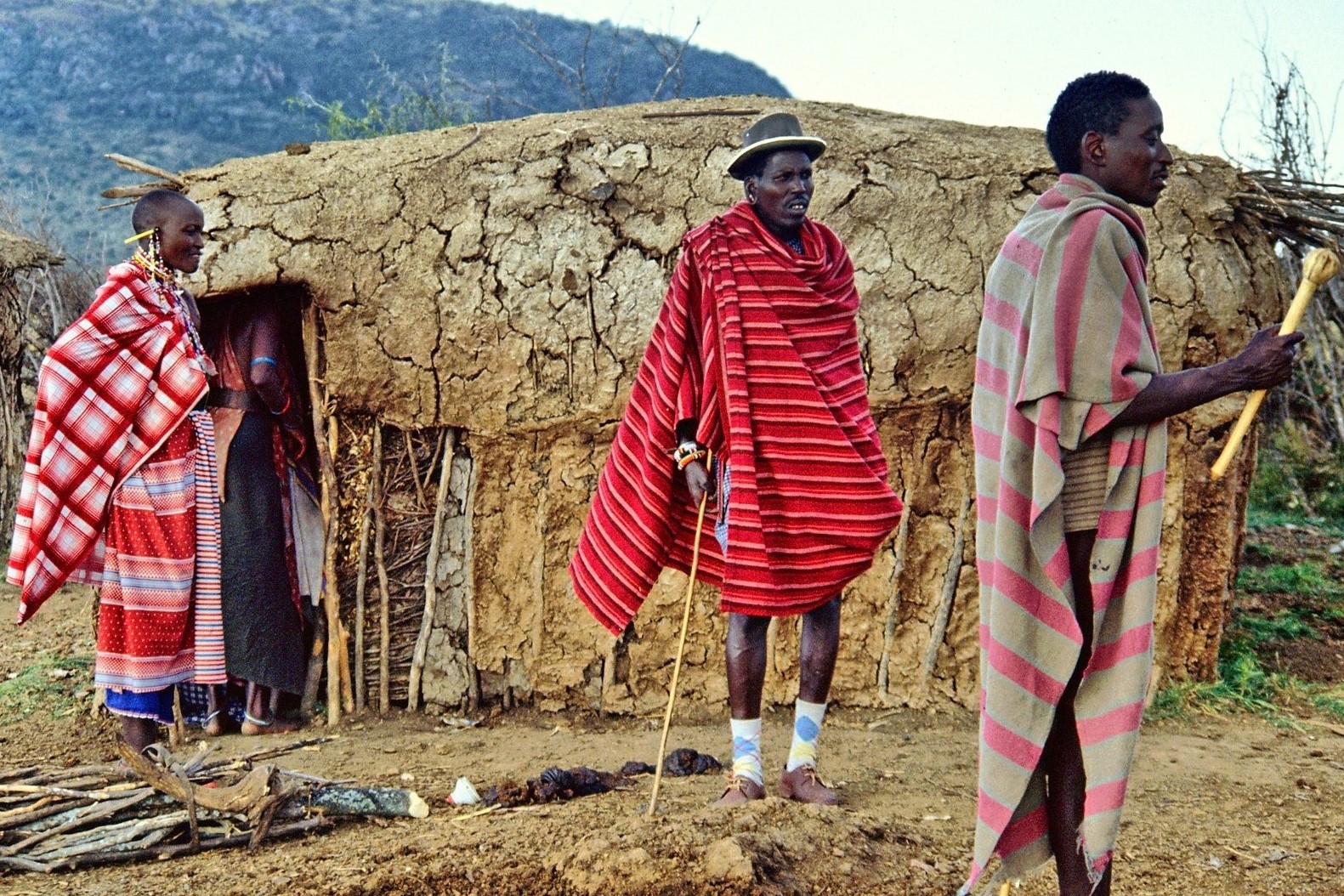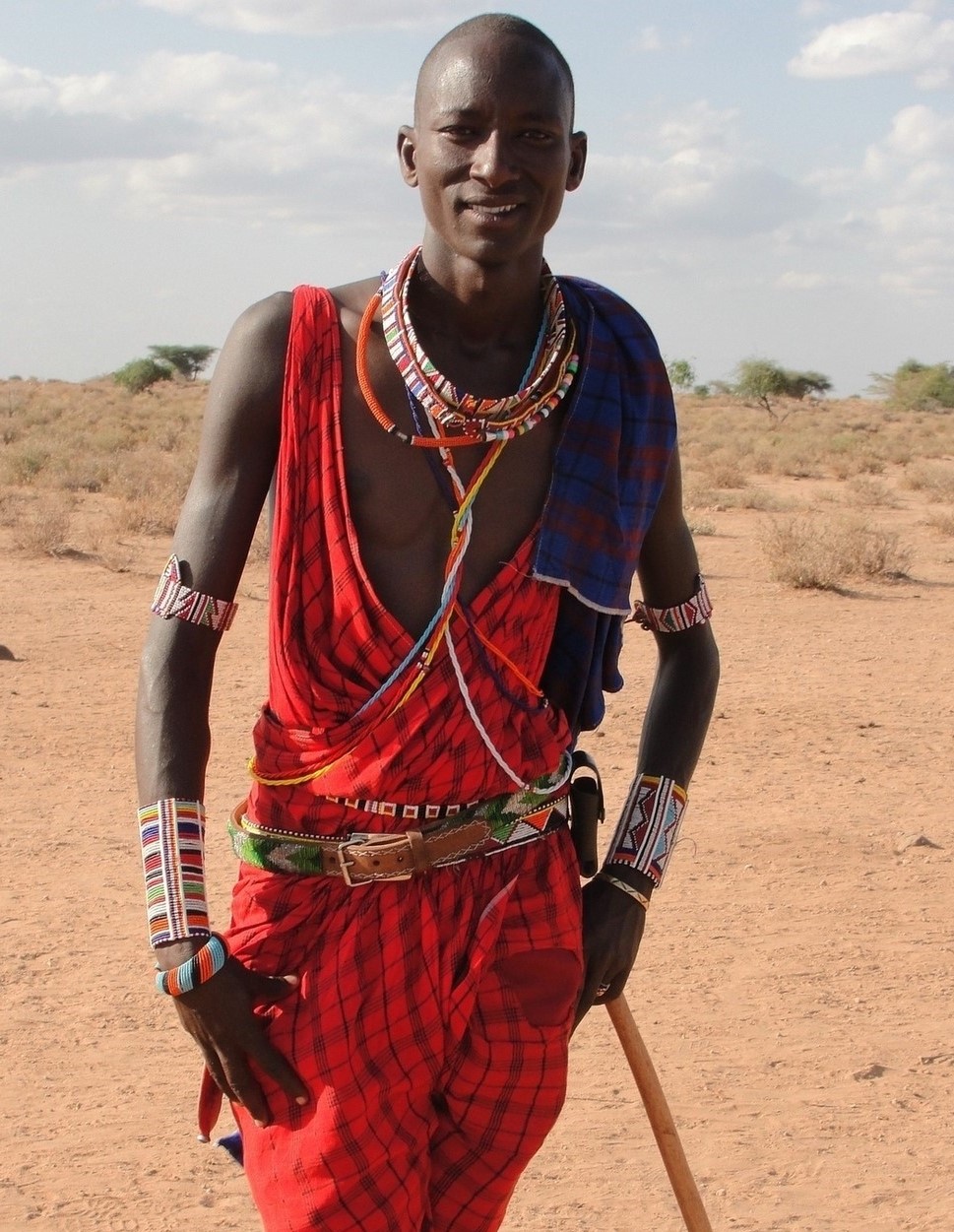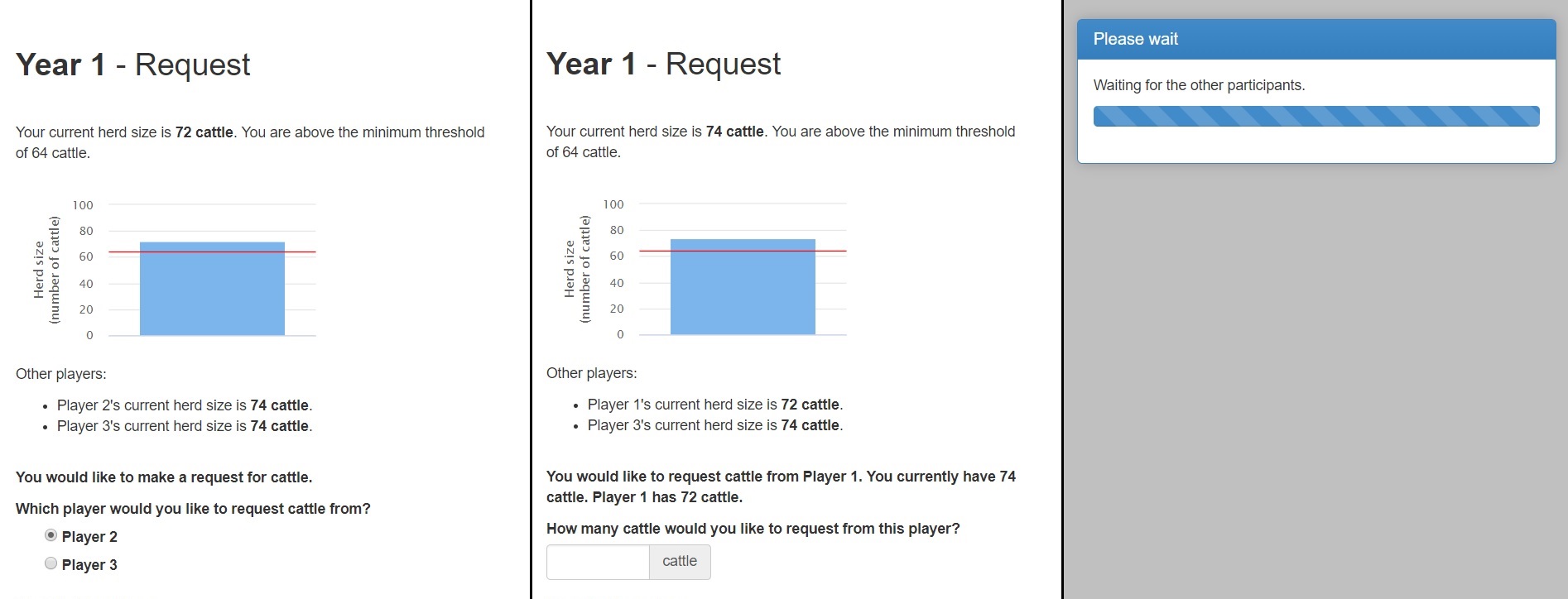The Survival Game
Risk pooling and cooperation in the Maasai
In conjunction with The Human Generosity Project (Arizona State University / Rutgers University), I have been studying one particular system of sharing found among the Maasai pastoralist herders of East Africa. Known as osotua, the system is characterised by offers of cattle to others in need, with no expectation of reciprocation. We have coined the term “need-based transfer” to explain this unique relationship, and have shown that it functions to pool the risk and uncertainty inherent to the pastoralist lifestyle.


Osotua is an interesting example of human cooperation to study. However, it is difficult to answer questions about osotua in the field, as it is unethical and impractical to manipulate such a well-established, sacred Maasai system. Instead, laboratory studies allow more scope for the manipulation of variables and controlled experimentation.
At the end of 2017, I created the Survival Game as a simulation of the pastoralist lifestyle of the Maasai, for use in laboratory and online experimentation. In the game, players manage herds of cattle over time. These herds are vulnerable to disasters. Each round, players can ask one another for help, and send cattle to others who ask. Even in participants from the US, unfamiliar with the osotua system, the Survival Game elicits behaviour very similar to that of the Maasai: players ask for help when they are in need, and share resources if they are asked and able to give without becoming needy themselves.

The Human Generosity Project is now utilising this tool to study need-based transfer giving more closely than before. In a first study, we manipulated the visibility of resources, finding that people were more greedy and stingy when they could hide their current herd size (see paper here). This finding has implications for understanding how risk pooling functions in societies with differences in resource visibility.
We can also ask questions such as:
- Do individuals follow account-keeping, reciprocal sharing rules when risks are more predictable?
- To what extent is empathy required for need-based transfers to be effective?
The Survival Game is an open-source economic game, created in oTree, that can integrate with MTurk for online experiments. Play a 2-player demo version of the game here, or download the code itself from my GitHub repository.
Further Reading
Aktipis, C. A., Cronk, L., & de Aguiar, R. (2011). Risk-pooling and herd survival: An agent-based model of a Maasai gift-giving system. Human Ecology, 39(2), 131-140.
Aktipis, A., De Aguiar, R., Flaherty, A., Iyer, P., Sonkoi, D., & Cronk, L. (2016). Cooperation in an uncertain world: for the Maasai of East Africa, need-based transfers outperform account-keeping in volatile environments. Human Ecology, 44(3), 353-364.
Claessens, S., Ayers, J. D., Cronk, L., & Aktipis, A. (2021). Need-based transfer systems are more vulnerable to cheating when resources are hidden. Evolution and Human Behavior, 42(2), 104-112.
Cronk, L. (2007). The influence of cultural framing on play in the trust game: A Maasai example. Evolution and Human Behavior, 28(5), 352-358.